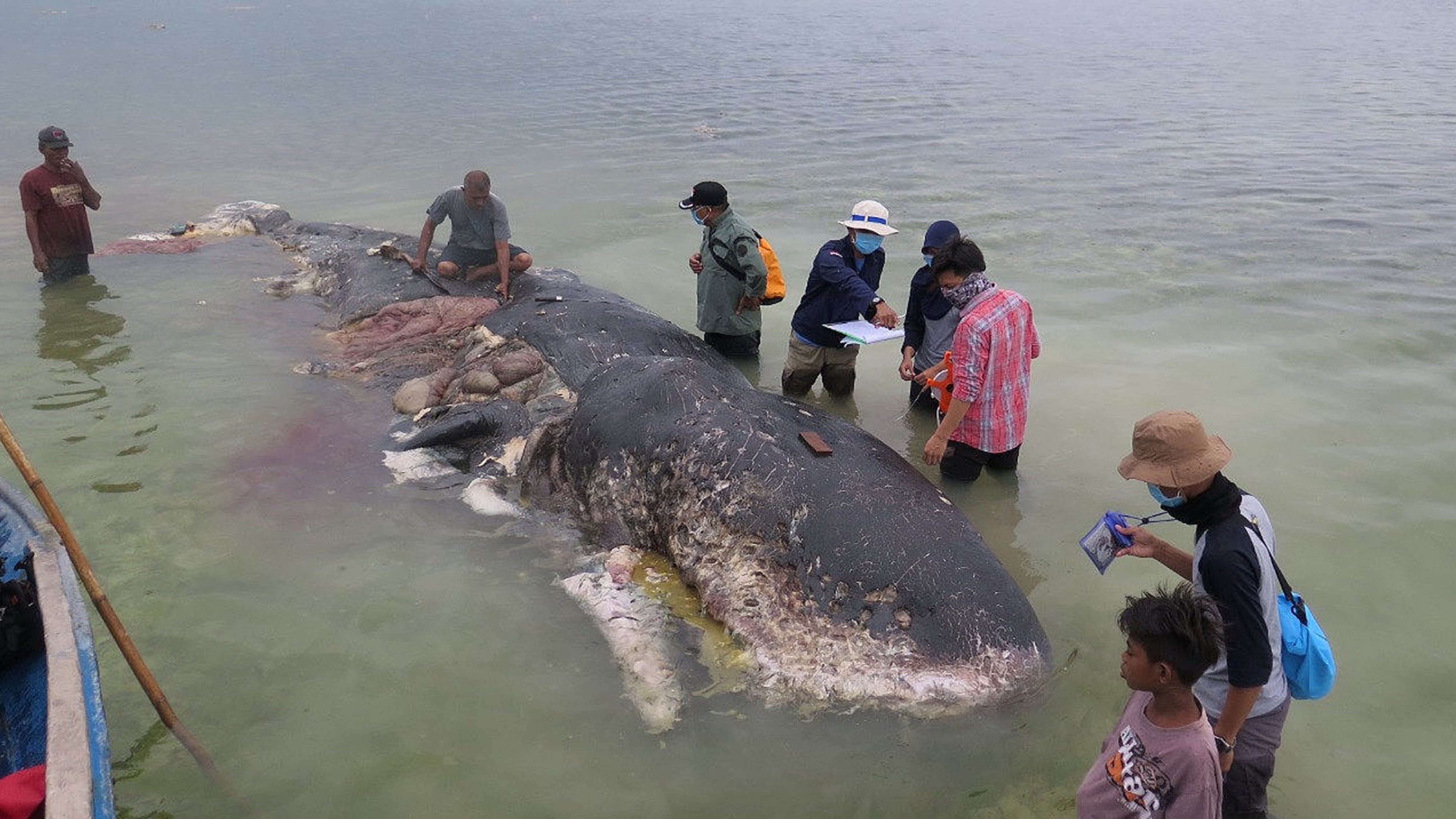
Enviro
22:18, 21-Nov-2018
Dead sperm whale in Indonesia found with 6 kg of plastic in stomach
Updated
21:18, 24-Nov-2018
CGTN
00:40

A sperm whale has been found dead in Indonesia with 115 plastic cups and 25 plastic bags in its stomach, raising concern among environmentalists and throwing the spotlight on the country's problem with waste.
The items were part of nearly six kilograms (13 pounds) of plastic waste discovered in the 9.5-meter (31-foot) carcass when it washed ashore in Wakatobi National Park, in Southeast Sulawesi province, on Monday.
Other debris included flip-flops and ripped tarpaulins, the head of Wakatobi tourism, La Ode Saleh Hanan, told AFP on Wednesday.
Conservation group WWF Indonesia said on social media its staff found four plastic bottles and 3.26 kilograms of raffia rope, as well as the plastic bags and cups.

The 31-foot whale was found to have ingested 115 plastic cups, four plastic bottles, 25 plastic bags, a nylon sack, two flip-flops and more than 1,000 other assorted pieces of plastic. /VCG Photo
The 31-foot whale was found to have ingested 115 plastic cups, four plastic bottles, 25 plastic bags, a nylon sack, two flip-flops and more than 1,000 other assorted pieces of plastic. /VCG Photo
The exact cause of the whale's death is not yet known but there are signs that "plastic waste might have triggered it," WWF Indonesia marine species conservation coordinator Dwi Suprapti told AFP.
Wakatobi district, a picturesque collection of four main islands surrounded by a marine reserve, has urged Indonesia's central government to help tackle the problem of marine debris.
Indonesia is one of the world's biggest contributors to marine debris, and a colossal 1.29 million metric tons is estimated to be produced annually.
The problem has grown so bad that Indonesian officials declared a "garbage emergency" last year after a six-kilometer stretch of coast along the island of Bali was swamped with rubbish.
The archipelago of more than 17,000 islands has pledged to reduce marine plastic waste by 70 percent by 2025.
It plans to boost recycling services, curb the use of plastic bags, launch cleanup campaigns and raise public awareness.
But poor waste-processing infrastructure and low awareness among its 260 million inhabitants prove to be major obstacles.
Source(s): AFP

SITEMAP
Copyright © 2018 CGTN. Beijing ICP prepared NO.16065310-3
Copyright © 2018 CGTN. Beijing ICP prepared NO.16065310-3